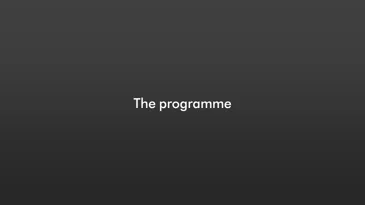The Programme

Bring academic theory to life.
Studying for an MEng at the Dyson Institute gives you the unique opportunity to study for your degree at the centre of a global leader in design innovation. You’ll learn engineering fundamentals from leading academics and put them into practice developing future Dyson products.
Twenty-first century engineering demands multidisciplinary experts. In your first two years you'll study a general engineering syllabus. Designed to be academically rigorous, and covering engineering fundamentals, theory is paired with real life learning as you rotate through many of Dyson's global engineering teams. You'll gain a strong academic and technical foundation across:
- software engineering
- mechanical engineering
- electrical and electronics engineering
- electromechanical engineering
Building on these broad skillsets, in years three and four you'll choose to specialise in one of these areas. Whilst this can be challenging, we support you to find the specialism that best aligns with your skills and interests. With your unique skillset you'll have opportunities to develop your expertise and become an invaluable part of your team.

Programme structure
You'll learn and work on Dyson's Malmesbury campus, where you can make the most of our state-of-the-art facilities and enjoy in-person support from Dyson Institute academics and Dyson engineers. Working and collaborating with others, you'll help to solve problems that others ignore.
There are two academic semesters per year:
- Semester one: September - February
- Semester two: February - July
During term time, two days a week are devoted to lectures, revision, academic projects and self-study.
When you join, you will spend the remaining three days per week in an extended workplace induction, focused on technical training and development through problem-based learning, based on a real Dyson project. This will equip you with the skills and confidence to make a real impact when joining your first workplace rotation in January.
You'll have four workplace rotations across your first two years on programme, giving you an insight into mechanical, electronics and software engineering and New Product Innovation. In your third and fourth year, you'll have the opportunity to specialise in one of these areas, or combine through the electromechanical stream.
What happens in summer?
You will continue to spend three days per week in the workplace. On your two 'academic' days, you will continue your personal and professional development as outlined below:
- Year 1: you'll complete a Summer Series project which is designed to develop your understanding of end-to-end product development that goes beyond your workplace experiences.
- Year 2: you'll complete a manufacturing rotation to understand another side of the product development cycle; where possible this will include an opportunity to spend time in Dyson's inspiring research and development facilities in South East Asia.
- Years 3 and 4: you'll spend the time working in your final engineering team.
The programme is taught across a variety of delivery methods to accommodate all styles of learning. These include lectures, tutorials, demonstrations, workshops, project supervision, group work and work-based learning.
The programme is assessed by approximately 40% examination and 60% assessed coursework. Both academic and workplace modules will contribute towards your degree qualification. Each year will be weighted accordingly to contribute to your final grade:
- Year 1 - 0%
- Year 2 - 20%
- Year 3 - 40%
- Year 4 - 40%
You'll receive a generous holiday entitlement of at least 40 days, plus eight bank holidays. This is a mixture of approximately ten days 'annual leave' which you can book any time (excluding study days), and 31 days 'academic leave', distributed at key points in the programme:
- Two weeks over Christmas (including two bank holidays)
- One week in February
- Two weeks around April/May depending on Easter and the academic calendar (usually including two bank holidays)
- Two weeks in summer
I believe opting for a degree programme with a work-based element has had the biggest impact on where I am in my career today. Without the workplace rotations in the first two years of the course, I wouldn’t have been aware of acoustics as an engineering discipline.











